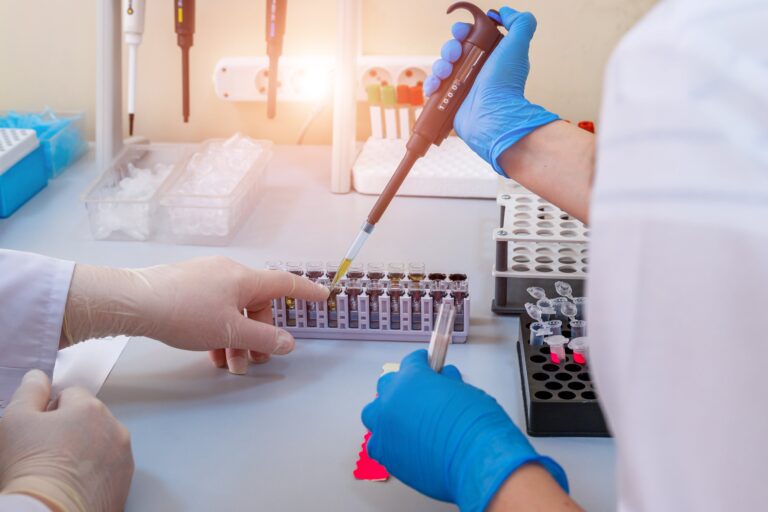
In the realm of healthcare, understanding the intricacies of diagnostic tests is crucial for proactive health management. Among the array of diagnostic tools available, blood tests stand out as invaluable sources of information about our overall health. In this article, we delve into the world of Comprehensive Metabolic Panel (CMP) and Basic Metabolic Panel (BMP) blood tests, exploring what they can detect and why they are essential components of preventive healthcare. The aim is to highlight the importance of blood tests in Larnaca.

What is a Comprehensive (CMP) and Basic (BMP) Blood Test?
Before delving into what these tests can detect, let’s first understand what CMP and BMP tests entail. Both CMP and BMP tests are blood panels that provide vital information about the body’s metabolic and chemical balance. These tests analyze various components of blood, offering insights into organ function, electrolyte levels, and overall health status. Conducted through a simple blood draw, these tests are commonly ordered by healthcare providers as part of routine check-ups, diagnostic investigations, or monitoring of chronic conditions.
Despite their differences in complexity, both tests are essential tools in preventive healthcare, helping individuals and healthcare professionals alike in assessing and maintaining optimal health. It’s helpful to be aware of the distinction when looking to take your own blood test in Larnaca.

What Does a Comprehensive Metabolic Panel (CMP) Test for?
A Comprehensive Metabolic Panel (CMP) is a comprehensive blood test that evaluates various aspects of metabolic function and organ health. It typically includes tests for:
- Glucose Levels: Glucose levels are crucial indicators of the body’s ability to metabolize sugar effectively. Monitoring glucose levels through CMP tests aids in the early detection and management of conditions such as diabetes and hypoglycemia, ensuring optimal blood sugar control and overall health.
- Electrolytes: Electrolytes, including sodium, potassium, and chloride, play vital roles in maintaining proper fluid balance, nerve function, and muscle contraction. Abnormalities in electrolyte levels, detected through CMP tests, can indicate dehydration, kidney dysfunction, or hormonal imbalances, necessitating prompt intervention to restore electrolyte balance and prevent complications.
- Kidney Function: CMP tests assess kidney function by measuring blood urea nitrogen (BUN) and creatinine levels. These markers provide valuable insights into the kidneys’ ability to filter waste products from the blood. Abnormalities in BUN and creatinine levels may indicate kidney disease, dehydration, or other renal issues, prompting further evaluation and management to preserve kidney health.
- Liver Function: Evaluation of liver function is integral to CMP tests, which measure levels of liver enzymes such as ALT, AST, and alkaline phosphatase. These enzymes reflect the liver’s health and function, helping identify conditions such as hepatitis, liver damage, or impaired liver function due to alcohol consumption or medication usage. Timely detection of liver abnormalities enables healthcare providers to initiate appropriate interventions and prevent the progression of liver-related diseases.
- Protein Levels: CMP tests include assessments of total protein and albumin levels, which are essential for maintaining proper fluid balance, transporting nutrients, and supporting immune function. Abnormalities in protein levels may indicate nutritional deficiencies, liver dysfunction, or underlying health conditions such as kidney disease or inflammatory disorders. Monitoring protein levels through CMP tests aids in the early detection and management of these conditions, promoting optimal health and well-being.
What Can a Basic Metabolic Panel (BMP) Test Detect?
A Basic Metabolic Panel (BMP) is a simpler version of the CMP, focusing on key metabolic markers. It typically includes tests for:
- Glucose Levels: The BMP test includes measurements of blood glucose levels, providing valuable insights into the body’s ability to regulate sugar metabolism. Monitoring glucose levels through BMP tests assists in the early detection and management of diabetes mellitus and hypoglycemia, ensuring optimal blood sugar control and overall health.
- Electrolytes: BMP tests encompass measurements of essential electrolytes such as sodium, potassium, and bicarbonate, which are crucial for maintaining fluid balance, nerve function, and acid-base equilibrium in the body. Abnormalities in electrolyte levels detected through BMP tests can signify electrolyte imbalances, dehydration, kidney dysfunction, or metabolic disorders.
- Kidney Function: Evaluation of kidney function is a key component of BMP tests, which include measurements of blood urea nitrogen (BUN) and creatinine levels. These markers provide valuable insights into the kidneys’ ability to filter waste products from the blood and maintain fluid and electrolyte balance. Abnormalities in BUN and creatinine levels may indicate acute or chronic kidney disease, dehydration, or other renal disorders, necessitating further evaluation and management to preserve kidney health.

Why Are CMP and BMP Tests Important?
Comprehensive Metabolic Panel (CMP) and Basic Metabolic Panel (BMP) tests play pivotal roles in preventive healthcare for several reasons:
- Early Detection of Health Issues: These tests can detect abnormalities in metabolic function and organ health before symptoms manifest, allowing for early intervention and treatment.
- Monitoring Chronic Conditions: For individuals with chronic conditions such as diabetes or kidney disease, regular CMP and BMP tests help monitor disease progression and treatment effectiveness.
- Assessment of Overall Health: By providing a comprehensive overview of metabolic markers and organ function, these tests offer valuable insights into overall health status and potential risk factors for various diseases.
In conclusion, Comprehensive Metabolic Panel (CMP) and Basic Metabolic Panel (BMP) blood tests in Larnaca are indispensable tools in preventive healthcare. By evaluating metabolic markers, electrolyte levels, and organ function, these tests enable early detection of health issues and facilitate proactive management of chronic conditions. Whether it’s for routine screening or monitoring existing health conditions, CMP and BMP tests play a vital role in maintaining optimal health and well-being.
As advancements in medical technology continue to evolve, these blood tests remain fundamental pillars in diagnostic medicine, empowering individuals to take control of their health and pursue longevity with confidence.
Embracing the importance of regular blood tests in Larnaca and beyond, individuals can embark on a journey towards a healthier, happier life, supported by comprehensive healthcare and informed decision-making. Trust Konomou Lab Larnaca for accurate results and personalized care tailored to your health needs, ensuring peace of mind and well-being for years to come.


